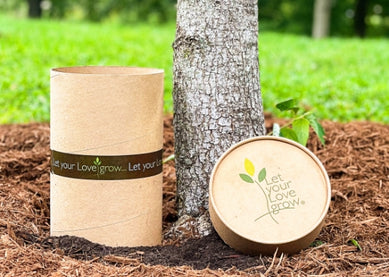Counterfactual Thinking in Grief: Let’s Transform Unnecessary Suffering into Healing
In the journey of life, we acknowledge the inevitable reality of death—a universal truth that no one will remain on this earth forever. Yet, when it arrives uninvited, stealing away someone we love, the emotions and physical pain become indescribable. Within this landscape of grief, our thoughts wield a powerful influence, capable of evoking unnecessary suffering. The initial step in combating this internal turmoil is recognition. In the lines that follow, we embark on an exploration of how to shift the tide from needless suffering to a path of internal healing.
Counterfactual Thinking: Would’ve, Could’ve, Should’ve
Have you ever found yourself wandering down the mental path of "would've, could've, should've," imagining alternative scenarios that might have prevented the loss of your loved one? It's a common cognitive process known as counterfactual thinking, where we contemplate "what if" scenarios, pondering how different choices might have led to alternate outcomes. In grief, our thoughts can elicit unnecessary suffering, intensifying feelings of guilt, regret, and anguish.
Counterfactual thinking is a natural response as we grapple with the profound impact of loss. Our minds instinctively seek explanations and ways to make sense of the unexplainable. However, dwelling on these alternative scenarios intensifies the unnecessary suffering associated with grief.
Managing Counterfactual Thinking: A Three-Step Approach
- Awareness: The first step in managing the impact of counterfactual thinking is recognition. Become aware of when these thoughts arise and acknowledge their presence in your mind.
- Self-Compassion: Be gentle with yourself. Grief is a complex journey, and counterfactual thinking is a common aspect of it. Extend the same compassion to yourself that you would to a dear friend facing a similar struggle.
- Reality Check and Grounding Techniques: Remind yourself that the past cannot be changed. While it's human to explore "what ifs," recognize that these scenarios exist only in our thoughts. Redirect your focus to the present moment through grounding techniques—whether it's a mindful walk, deep breathing exercises, meditation, or immersing yourself in a hobby. Shifting your attention can help break the cycle of counterfactual thinking and bring you back to the reality of the present.
Seeking Support and Embracing the Healing Journey
If counterfactual thoughts become overwhelming, consider seeking support from a grief expert or joining a support group. Expressing and processing these feelings in a safe space can be immensely beneficial in navigating the complexities of grief.
Healing is a gradual process, and it's perfectly okay to seek help, allowing yourself the time and space needed to find peace amidst the unnecessary suffering of grief.
Celebrating Love and Positive Impact and Embracing Hindsight
Acknowledge the love and care you provided during your loved one's lifetime. Instead of dwelling on perceived missed opportunities, celebrate the positive impact you had on their life. Recognize that your actions were motivated by love and the best intentions at the time. Embrace the concept of hindsight being 20/20—acknowledge that, with the information and circumstances you were presented with, you did the best you could. Understand that the wisdom gained from reflection allows you to appreciate the choices made in the context of the past, offering a compassionate lens through which to view your journey.
Honoring Memories through Rituals
Consider incorporating rituals or practices that honor the memory of your loved one. This can be a meaningful way to channel your emotions positively, fostering a sense of connection and remembrance. Whether creating a memorial, planting a tree, or dedicating a space in your home, these rituals provide comfort and a tangible way to express your love.
Conclusion
Grief healing is a process that demands time and effort, grief cannot be rushed. While on this journey that is uniquely yours, it's crucial to acknowledge that dwelling on the past, especially on aspects beyond your control, is counterproductive. Beating yourself up over what could have been serves only to impede the path to healing. Instead, approach your grief journey with a compassionate heart, understanding that healing is not a linear process. Embrace each step forward, recognizing the resilience within you. By releasing the weight of self-blame, you create space for the warmth of healing to gradually infuse your life. Remember, healing is a profound act of self-love, and each moment of gentleness with yourself is a step closer to the peace you deserve.
Author’s Bio
Kelci Jager, a Certified Life Coach, Grief Coach, and Registered Nurse, found herself navigating the challenging terrain of grief when she lost her 40-year-old husband to leukemia. Left to pick up the pieces of her shattered life as a solo parent to their four sons, Kelci faced the fear of her children losing her too. However, her determination to RISE and thrive became her driving force. With a blend of professional expertise and a deeply personal journey as a widow and solo parent, Kelci possesses a strong foundation and a unique perspective. She is passionately committed to providing support and guiding others on their grief journey. For more information visit risewithgrief.com.










